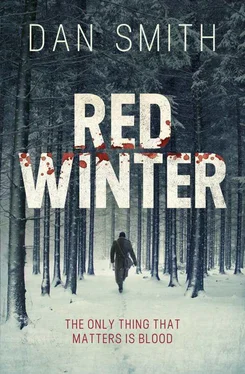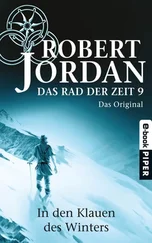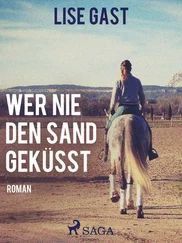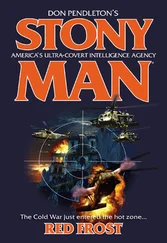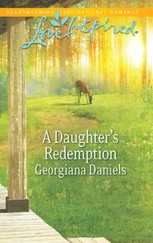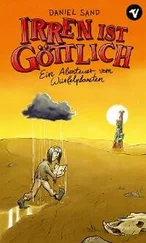‘We’ll sup well tonight,’ she said, smiling at Anna for longer than necessary before handing back our satchels.
‘There’s enough food there for us to eat well for two days ,’ Lyudmila said to Tanya. ‘We need that.’
‘We can find more,’ Tanya replied.
‘Where? Where do we find more?’
‘The forest is full of things to eat, and we’re close now. We can spare it.’
‘But—’
‘We can spare it,’ Tanya said again.
The old woman watched closely as they spoke, as if she was hanging on every word they said, waiting to learn the outcome. And when they had finished speaking, she put out a crooked and liver-spotted hand to touch Tanya’s. She patted it once and smiled her near-toothless smile. ‘You said there’s enough for you for two days.’ She looked at Lyudmila. ‘Then perhaps there will be enough for nine to eat just one good meal.’
Lyudmila stared back at her as if about to challenge the old woman to explain herself, but I understood what she meant. She and Sergei were not alone on the farm. There were others here too.
The old woman shifted and turned to Sergei, who had finished lighting the oven and was watching from a distance. ‘Tell them to come down,’ she said.
Sergei hesitated.
‘Go on. Go.’ She waved a leathery hand. ‘It’s safe. Kolya won’t hurt us.’
I dropped my hand beneath the table and slipped it into my coat pocket. The pistol was still cold when I wrapped my fingers round it.
Sergei looked at the floor as if his feet had become interesting, but his wife snapped his name, making him jump. ‘Sergei.’
He looked up.
The old woman sneered at him. ‘It’s all right, you old fool. Tell them to come down.’
Sergei went into the darkness at the far end of the room and lifted a ladder from its place against the wall. He put it up to the side of the pich , placing it carefully.
‘You can come down,’ he said, but as he spoke, he cast a look in our direction. He wasn’t as convinced as his wife that we were harmless.
The first feet to step onto the ladder protruded from the hem of a dark skirt and the woman came into view as she climbed down. For a moment I was taken aback, as I saw my own wife, Marianna, descending those rungs and I had to close my eyes and shake some sense into my head. When I opened them again, the woman was looking at me. She wasn’t Marianna, but there was a resemblance. She had hair like Marianna’s, and it was tied back in the style that Marianna wore it, loose at the front so that it fell across her forehead. She had a similar build, with a waist that had once been full and healthy but had narrowed as times became harder. She was pale like Marianna too, but not as pretty, and when she stepped into the light, I saw she had dull green eyes, while Marianna’s were blue.
‘Our daughter, Oksana,’ said the old woman, and as she spoke, the first set of children’s feet touched the ladder and Oksana stretched up to help the girl down.
‘Natasha,’ said the old woman with a smile.
The girl, perhaps five or six years old, clung to her mother’s skirt as the second child descended the ladder; a boy who looked to be at least ten years old. Both children were pale and thin like Anna, their cheeks almost hollow, dark circles under their eyes.
‘And this is Nikolai,’ she said, looking at me. ‘Your namesake.’
The three of them stood huddled like refugees at the bottom of the ladder, holding each other close, and I imagined Marianna might have looked the same when she tried to protect our sons from Krukov. Except for them, it would have been different, because Marianna would have only been able to hold them for a few seconds before snatching up their coats and ushering them out and across the footbridge to seek the false safety of the forest. I could only imagine how she must have felt, seeing them go, having to return home to wait for the devils, only to be dragged across the road and into the trees, forced to witness the murder of Galina’s husband and then…
He likes to drown the women .
When Oksana came closer, I took my hand from my pocket and acknowledged her with nod and by speaking my name but little else.
Oksana and the old woman made soup, while the children stayed close to them at the pich and the rest of us waited at the table. Sergei sat with his hands on the coarse surface, fingers laced together as if in prayer, eyes fixed on the tabletop. He only looked up from time to time, catching my eye and then looking away again.
‘It’s good of you to take us in,’ I said, breaking the uncomfortable silence.
Sergei shrugged.
Behind him, the old woman opened a cupboard to retrieve a bowl of salt and I noticed the cupboard was not as empty as I might have expected it to be. There were bottles lined against the back of it, jars of what looked like pickles, and bundles of cloth like the ones Marianna used to keep dried fish and meat.
‘The war hasn’t been too unkind to you?’ I said, making Sergei raise his eyes and follow my gaze.
‘Oh. No. Not too unkind.’ He nodded and looked away, embarrassed.
I glanced sideways at Tanya and saw that she had spotted it too. I could almost hear what she was thinking – that these people would take our food when they had plenty of their own – but I gave a small shake of my head, warning her to keep quiet. This was a family trying to stay alive, and they had offered us shelter.
Now that I had seen the well-stocked cupboard, though, I began to notice other things inside the izba , such as the boots by the door. I paid them no attention when we came in, but beside the rifles Tanya and Lyudmila had propped against the wall, there were two pairs of good boots that looked hardly used. The woven mat on the floor still had its colours – bold reds and blues and clean whites – and there was another hanging on the wall at the back of the room. There was a shotgun on nails close to the door. The blankets above the pich were plentiful. The soft shoes on the old woman’s feet were clean and still held their shape, and the clothes they wore were in better condition than I might have expected.
This was the home of poor peasants, so it would have been a surprise they owned so much and lived so comfortably at any time, but especially in these years of confiscation and requisition. Yet they did not have the appearance of people who lived well. Their skin had the waxy pallor of those who have had little nourishment. The children had the sunken and hollow faces of those who were growing close to starvation. Their demeanour didn’t match their possessions and their well-stocked cupboards. The acquisition of this food had come recently.
Perhaps they had found this place, like Lev and Anna had found the farm where I met them. Or perhaps there was another reason. Something darker.
When the meal was ready, Oksana brought it to the table and the old woman served it and we sat together round the table to eat, as if we were a family. The hot broth was good and went well with the cold meat, but nothing about that meal made me feel the security I ever felt at home, or the inclusion I had felt with Lev and Anna when they took me in.
While the old man remained quiet, his wife talked about the revolution and about the war the before it and the war that had come after it.
She leaned forward across the table as if she was going to invite us into a conspiracy. ‘They even fired shells at the field just on the other side of the farm.’ She nodded her head. ‘Men fighting, shooting, killing one another – there was so much noise we hid under the table waiting for it to stop. Full of holes it is now, that field. No use to anyone.’
Sergei looked at his wife as she spoke, his eyes shifting away to watch me and Tanya and Lyudmila in a way that made me nervous. With the light and the warmth and the food and the family sitting about us, I should have been comfortable, but there was an undeniable tension here.
Читать дальше
